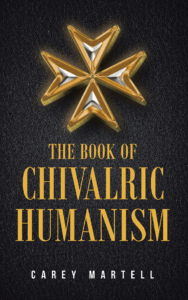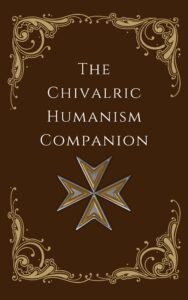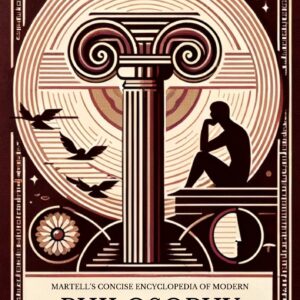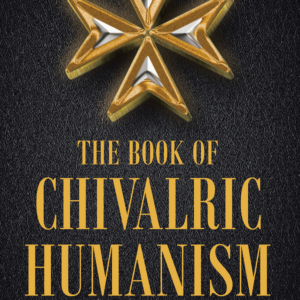Free Resource Downloads about Chivalric Humanism
Download a free eBook version of the Chivalric Humanism Companion. Click here. Alternatively, you can purchase a physical copy of the book on Amazon by clicking here.
This companion book should serve not only as a philosophical guide but also as a practical manual for living out the tenets of Chivalric Humanism. By providing context, practical advice, and a means to integrate the philosophy into everyday life, the book will be an invaluable resource for new adherents.
As you delve into the chapters that follow, you will find that Chivalric Humanism is not merely an individual pursuit but a collective endeavor to elevate the human experience. It encourages us to strive for personal excellence and to contribute to the greater good, embodying the ideals of the knights of old in a way that is relevant for the world we live in today.
This Companion Book is not intended to replace the Book of Chivalric Humanism but instead to complement it by providing clarification of its writings and summarizations of the beliefs. It is a streamlined version that briefly discusses key ideas and concepts described in more detail in the foundational text, the Book of Chivalric Humanism. This book is intended to be used as a reference manual for understanding Chivalric Humanism.
May this Companion serve as your mentor and ally, illuminating the path of virtue, courage, and wisdom. Embark on this journey with an open heart and a willing spirit, and discover the transformation that Chivalric Humanism can bring to your life and to those around you.
Download a free eBook version of the Book of Chivalric Humanism Click here. Alternatively, you can purchase a physical copy of the book on Amazon by clicking here.
 The Book of Chivalric Humanism is a collection of essays and observations that contains the core principles of Chivalric Humanism and is the foundation of its philosophy and dogma. This is a moral framework for atheists seeking useful practical advice for how to live a virtuous and purpose driven life.
The Book of Chivalric Humanism is a collection of essays and observations that contains the core principles of Chivalric Humanism and is the foundation of its philosophy and dogma. This is a moral framework for atheists seeking useful practical advice for how to live a virtuous and purpose driven life.
If you enjoy the books Good Without God by Greg Epstein, Humanism: A Very Short Introduction by Stephen Law, and The Good Book: A Secular Bible by A.C. Grayling, then you you’ll enjoy The Book of Chivalric Humanism.
Overview of The Book of Chivalric Humanism
Core Philosophy
Chivalric Humanism is presented as a virtue-based moral framework that synthesizes elements of chivalry and humanism to create a rational, ethical system for guiding human behavior. Unlike religious frameworks, it is grounded in naturalism, reason, and objective reality, rejecting supernatural beliefs as obstacles to wisdom and progress.
- Chivalry as Ethical Discipline: The book adapts the medieval code of chivalry to modern humanist principles. It sees a new generation of self-identified ‘knights’ not as warriors but as moral champions who uphold virtue and protect others.
- Humanism as Rational Morality: Humanism in this context is a secular philosophy that values human dignity, critical thinking, and the pursuit of knowledge.
- A Call to Virtue: The book argues that virtue should not be subjective or culturally relative but rooted in rational principles that promote human survival and flourishing.
Structure of the Book
The book is divided into four major sections, each expanding on key aspects of Chivalric Humanism.
Book One: Humanism
This section introduces why Chivalric Humanism is needed in modern civilization. It critiques hedonism, irrational belief systems, and ideological extremism, arguing that many contemporary moral systems fail to provide a stable and objective foundation for ethical behavior.
Key points:
- Human civilization lacks unity, which hinders progress.
- Atheism alone is not enough; secular societies need an ethical framework beyond just rejecting superstitious religions.
- The ultimate goal is human survival, both individually and as a species.
- Rights are human constructs, not innate or divinely granted, and must serve rational purposes.
Book Two: Ethics
This section outlines what it means to be good and defines a virtue-based moral code for followers of Chivalric Humanism.
- Four Positive Principles: The foundation of the moral framework; Truth, Love, Courage and Wisdom.
- Eight Noble Virtues: Similar to medieval chivalric values but adapted for modern secular life: Loyalty, Altruism, Valor, Respect, Hope, Humility, Integrity, and Duty.
- Moral failures: The book identifies four negative principles (Falsehood, Hatred, Cowardice and Ignorance) and eight faults (Treachery, Selfishness, Greed, Disrespect, Despair, Vanity, Dishonesty, and Recklessness) that lead to social decay and personal corruption.
- Justice and Consequences: Punishment should be rational, proportional, and focused on maintaining stability rather than revenge.
Book Three: Human Potential
Explores self-improvement, mindfulness, and discipline as key components of a meaningful life.
Key points:
- Developing talents is essential for self-worth and societal contribution.
- Martial arts, meditation, and discipline are recommended practices.
- Noblesse Oblige: The ethical duty of those with talent or power to use it responsibly.
Book Four: Science and Reason
This section emphasizes scientific thinking, rational inquiry, and logical analysis as the bedrock of an ethical life.
Key points:
- The Scientific Method: The best way to discover objective truth.
- The Danger of Pseudoscience: Many ideological and religious belief systems rely on false premises.
- Logical Reasoning: Encourages analytic thinking over emotional decision-making.



